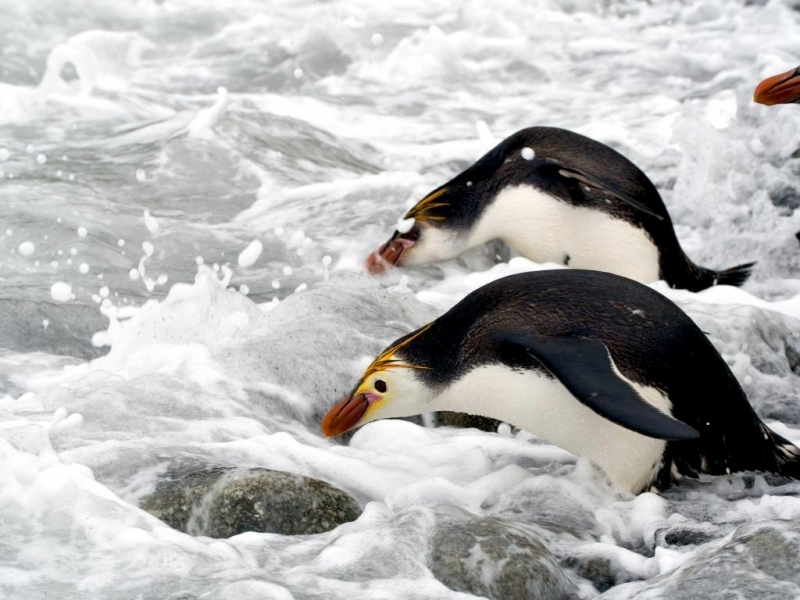Penguins drink salty water
Many penguins inhabit areas without access to fresh water. For instance, penguins in Antarctica may choose between ice and seawater. Because it is more practical and accessible, penguins usually receive their water from saltwater sources. They have a unique adaption to maintain a healthy balance of salt in their bodies.
Like most birds, penguins take their beverages by swallowing water. Although that is not very noteworthy, penguins frequently are forced to consume seawater. They utilize their powerful beaks to snag fish and other prey while swimming in the water. They will capture some water while catching a meal if they open their jaws while swimming at full speed. They frequently ingest their prey whole, bringing saltwater with them.
Even though their bodies don't require any more salt than other animals, penguins have specialized organs for processing salt water. They have a supraorbital gland that removes salt from their bodies, which is situated close to their eyes. The gland, through which their blood passes, catches the salt before it enters their bodies. The supraorbital gland must still remove extra salt from the penguin's body after filtering it out of the blood. A little quantity of moisture in the gland is combined with salt, which then passes via the nasal passages. The penguin's nose is dripping with salt-filled drips. To expel the drops and remove salt from their beaks, penguins frequently shake their heads.
Penguins can drink seawater, but penguins usually prefer to drink fresh water when they can find it. Some penguins even use snow as food and drink. Freshwater is where penguins in zoos reside, and certain species, like rockhopper penguins, prefer to dwell there rather than near the sea. Since the supraorbital gland solely functions to remove salt from the blood, it is not utilized when penguins only consume fresh water. Penguins drinking pure liquids without adding salt pose no health risks.













